Senator Wong’s three words have reignited Israel debate
Australia has traditionally been a loyal friend of the state of Israel but three words from Senator Penny Wong highlight the fragility of the situation.
Who started it? In the case of the Israel-Arab conflict, the answer is lost in millennia of religious, ethnic and nationalist disputes. And yet uninvolved governments, institutions, corporations and individuals are expected to take sides.
The current incarnation of the battle to dominate the Holy Land can be attributed to a United Nations General Assembly resolution from 1947.
It was a resolution Australia’s then External Affairs Minister Herbert Evatt played a central role in formulating. And it clearly divided the British Mandate of Palestine into separate Arab and Jewish nation states, with the holy city of Jerusalem placed under international jurisdiction.
The idea fell apart even before it was implemented.
Fighting between Jewish settlers and dispossessed Palestinians rapidly escalated to war involving the surrounding Arab nations in 1948.
Things haven’t improved much since.
Immense emotional baggage afflicts both sides of this relationship.
“On the Jewish Israeli side, deep-rooted existential fears, following millennia of persecution, pogroms and the trauma of the Holocaust, were later exacerbated by a number of mostly defensive wars fought against neighbouring Arab states,” says University of Sydney conflict studies lecturer Dr Eyal Mayroz.
“On the Palestinian side, experiences of dispossession, injustice, deprivation, daily humiliation, endless violations of rights and a sense of abandonment by the world – including by Arab states – have caused immeasurable despair.”
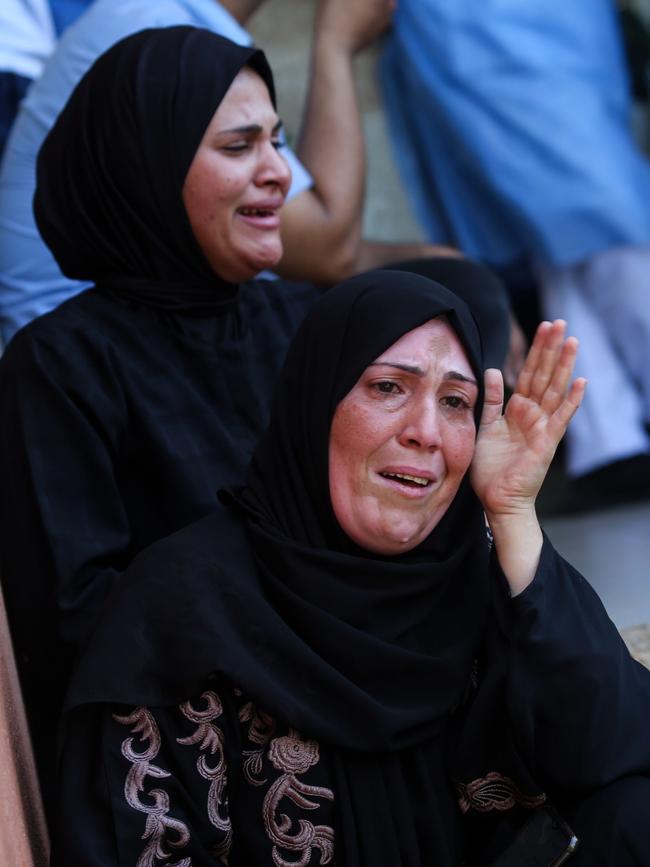
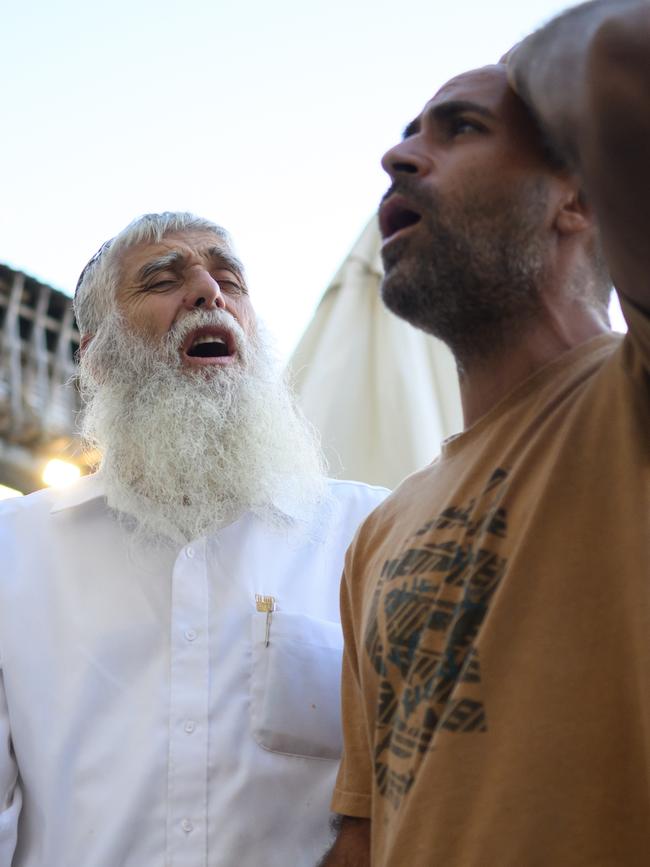
Global opinion is generally divided along cultural, political and religious lines.
“Once we choose to support a side in a conflict, we may go to great lengths to defend its actions,” says Mayroz. “New information, processed through our filters and conditioned responses, can be used to challenge, or cast doubt, on any claim made by the other side. The more emotionally invested we become in the cause, the harder it is for us to empathise with the suffering experienced across the fence.”
But it’s also a scenario where both Palestinian and Israeli civilians are victims. And both Palestinian and Israeli nations are perpetrators of extreme violence.
Now, after 75 years of ceaseless conflict, both are suffering a crises of legitimacy.
Australia’s choice
“In the century-long feud between the two sides over land, there’s been little respite from violence,” argues Mayroz. “Competing territorial claims continue to fuel duelling narratives of victimisation. These foment anger, animosity, fear and mistrust. Colossal leadership errors on both sides during historical junctures have led to missed opportunities to resolve a conflict that becomes more intractable by the year.”
Australia has traditionally been a loyal friend of the state of Israel.
But not without reservations.
In August, Foreign Minister Penny Wong clarified the relationship by reinstating the term “Occupied Palestinian Territories” when referencing the ongoing conflict.
In diplomacy, words are weapons. And this signalled the Federal Labor Government’s condemnation of Israel’s ongoing expansion into land partitioned for Palestinian Arabs.
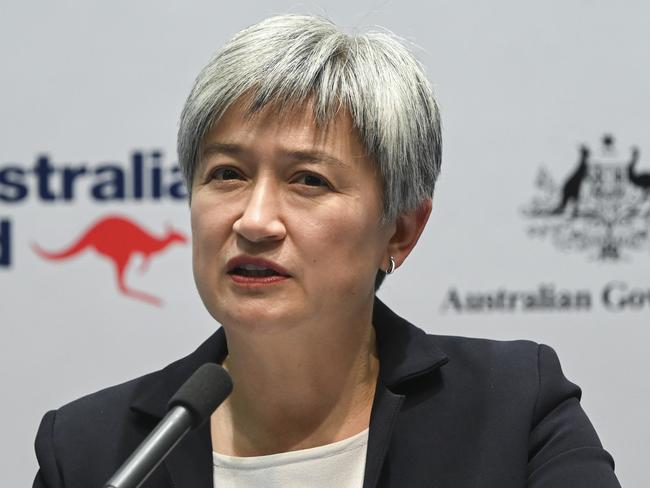
Commercial flights departing Tel Aviv remain available.
— Senator Penny Wong (@SenatorWong) October 20, 2023
DFAT is communicating with registered Australians about departure options.
More than 1,650 previously registered Australians have now left Israel and the Occupied Palestinian Territories.
But Labor hasn’t gone so far as to endorse the original UN resolution calling for the recognition of a nation-state of Palestine.
“Since 1948, Israel has derived much of its legitimacy from its status as a sovereign state,” says Deakin University lecturer in Middle East Studies Dr Andrew Thomas. “As a state, it has a recognised right to protect its borders, hold legitimate elections, make its own laws and use force to defend itself.”
Palestine does not have these internationally recognised rights.
“They have spent the bulk of their political history trying to achieve self-determination,” argues Thomas. “Without self-determination, Palestinians derive their political legitimacy from their struggle against the Israeli occupation in both the West Bank and Gaza.”
So how did the world get into this mess?
The world was shocked at the holocaust unleashed on the Jewish people by Nazi Germany. Film and photos exposed the industrialised scale of this institutionalised campaign of murder. And the testimony of returning troops and immigrating death camp survivors brought home the reality of the horror.
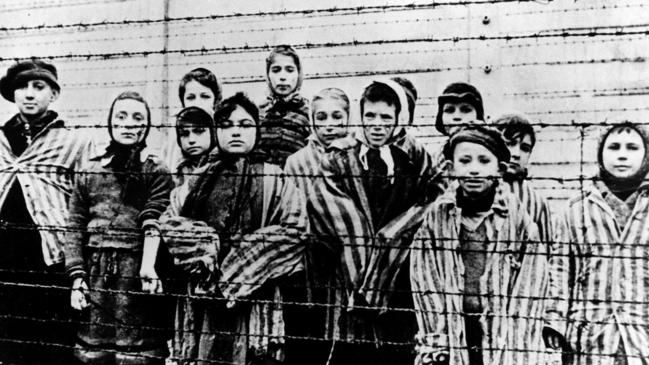
This motivated the fledgling United Nations to finally do something about the chaotic situation in the Levant that had resulted from the collapse of the Ottoman Empire.
The General Assembly resolved to re-establish the nation of Israel which had been destroyed by the Roman Empire more than 1800 years earlier. And this would exist alongside a new Palestinian state.
But things didn’t turn out so well.
The 1948 war resulted in 750,000 Palestinians being forced into exile after Israel annexed large tracts of Palestinian land. And subsequent wars, treaties, ceasefires, UN resolutions, and International Court rulings have only further muddied the waters.
For example, the International Criminal Court in 2021 vaguely redefined the Palestinian State as “territory occupied since 1967” when Israel “pre-emptively” invaded the West Bank, the Gaza Strip, East Jerusalem, Egypt’s Sinai and Syria’s Golan Heights.

But few nations accepted this ruling on the grounds it was territorial gain resulting from military action – something forbidden by Article 49 of the 1949 Geneva Convention.
“For most countries in Europe and in the Americas, the Occupied Palestinian Territories (OPT) are the “West Bank” including East Jerusalem, areas which they consider central to Palestinian self-determination through statehood,” explains the University of Wollongong’s Professor Gregory Rose who is also director of research for The Hague Initiative for International Cooperation.
He adds that Hamas, the Palestinian Authority, and many Islamic countries refuse to recognise Israel’s right to exist. But he also says Israel has legal arguments besides the International Criminal Court ruling to justify its controversial settlements.
“Palestine was not a state at the time Israel captured the West Bank of Jordan,” he says. “Thus, in 1967, Palestine was not a sovereign state to which the 1949 Geneva Convention could apply.
“The Israeli legal position is that those areas captured by Israel from Jordan in 1967 are “disputed” territories. This position is held in common with the previous Australian government, the US, and several other countries.”
Canberra’s balancing act
“Australia’s diplomacy in the Middle East is marked by a delicate balancing act,” says Charles Sturt University political scientist Professor Sally Totman.
“On one hand, it maintains strong alliances with Western nations, particularly the United States, and supports international efforts to combat terrorism. On the other hand, it seeks to cultivate relationships with Middle Eastern countries, many of which have complex geopolitical dynamics and differing views on regional issues, including the ongoing Israel-Palestinian conflict.”
Professor Totmay points out that Australia still has a military presence in and around the Holy Land.
Operation Paladin is a presence in Israel as part of the UN Truce Supervision Organisation.
Operation Mazurka is its contribution to the Multinational Force and Observers in the Sinai.
Operation Fortitude is Australia’s involvement in the UN Disengagement Observer Force in Syria.
Operation Okra is the ADF’s mission to support ongoing Coalition efforts against Islamic State in Iraq and Syria.
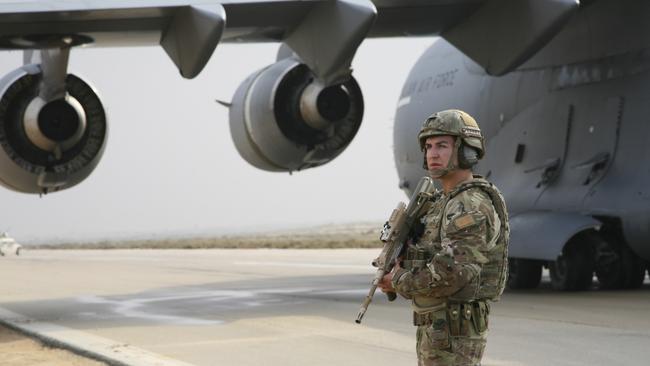
“For Australia, balancing its strategic interests with its commitment to human rights and democratic values remains a delicate task,” says Totman. “The shifting dynamics in global politics, including the reconfiguration of alliances, requires Australia to assess its relationship with, and policies towards, the Middle East with a long-term strategic approach.”
The United Nations General Assembly in 2012 granted Palestine full status as a nation-state. The then Gillard government abstained from that vote. And Australia is yet to formally recognise the move.
But Senator Wong’s recent rewording of Australia’s diplomatic lexicon to include “Occupied Palestinian Territories” has reignited the debate.
“In adopting the term, we are clarifying that the West Bank, including East Jerusalem and Gaza, were occupied by Israel following the 1967 war and that the occupation continues and reaffirms our commitment to negotiate a two-state solution in which Israel and a future Palestinian state coexist,” Senator Wong said.
No mention was made of Evatt’s original 1948 UN Partition Plan.
1948, 1967 … or something else?
“The world has lost hope in the viability of proposed solutions currently on the table,” argues Dr Mayroz, who believes the two-state policy has been dealt a severe blow by the current crisis.
“As meaningful negotiations have not been carried out for years, how helpful, really, is such a policy for advancing a resolution to the conflict?” he asks.
The alternative, however, is equally fraught with risk.
How does combining the Holy Land into a single one-size-fits-all state avoid sliding down the path of oppressive apartheid?
How can intractable religious, ethnic and political divides be balanced?
What processes can be implemented to resolve 75 years’ worth of land ownership disputes?
And is either side in a moral position to negotiate anyway?
Hamas – already recognised as a terrorist organisation by Canberra – has lost much of its remaining international legitimacy through its latest massacre of Israeli civilians.
But it’s also lost legitimacy among its own people. While democratically elected to govern Gaza 17 years ago, it has not held a vote since. It blames Israel’s blockade for making it impossible to do so. Israel rejects this. And polls indicate Hamas’ popularity has plummeted to just 11 per cent after repeatedly using Palestinian civilians as human shields.
Israel’s government also has legitimacy problems.
“Its decades of occupation and settlement in the Palestinian territories have brought into question its moral authority,” argues Dr Thomas. And its recent policy of ignoring Palestine while improving relations with surrounding Arab countries appears to have failed.
“The Hamas attacks show how complacent the Israeli government has become about its own political and moral legitimacy,” Thomas adds. “In neglecting its obligation to find an equitable solution to the conflict, the government has put both Israeli and Palestinian lives in danger.
“Hamas’s acts of terror cannot and should not be legitimised, but the broader call for Palestinian self-determination is something Israel must now meaningfully acknowledge. Its own legitimacy as a democratic, cosmopolitan and secure society is at stake.”
Originally published as Senator Wong’s three words have reignited Israel debate





